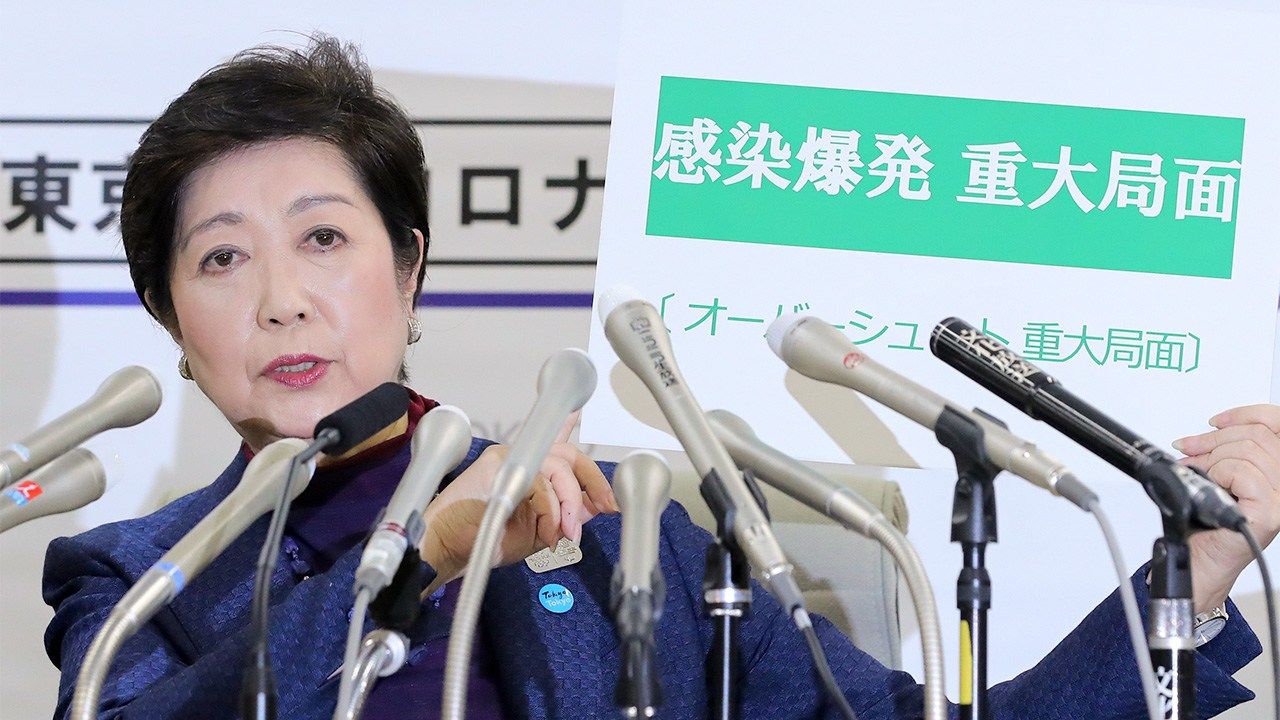
The Katakana Effect
1. In spring 2020, when Japan was experiencing its first wave of COVID-19 infections, Tokyo Governor Koike Yuriko employed a barrage of katakana loanwords in her daily press conferences.
2. Words like rokkudaun (lockdown), kurastā (cluster), and ōbāshūto (overshoot; a term adopted in Japan to mean an explosive rise in cases) attracted some criticism, but their freshness also highlighted the unusual situation and emphasized the new threat. Overfamiliar, established Japanese terms would not have had anything like the same effect.
3. The English-influenced phrase “Tokyo Alert” to warn against the crisis seemed a typical nod to the international from the capital, by comparison with the lighting up of Osaka’s longstanding Tsūtenkaku tower landmark.
4. The use of yoru no machi (night city) to refer to adult nightlife establishments eliminated any faint nuances of prejudice against that milieu, while uizu korona (“with corona”), describing the state where people continue to lead their lives although the disease has not been eradicated, carries the moral instruction that residents must each get by despite daily inconveniences.
5. All these were popularized by Koike, conveying a sharp sense of crisis and rousing the central government to action. As a skilled linguist, Koike is attuned to the power of words. With the momentum from her successful gubernatorial campaign in 2016, she established Tomin First as a local political party, combining tomin (“metropolitan citizens”) with a flashy loanword.
6. The beauty of the party name is that it suggests that others are not putting residents first. Similarly, the waizu supendingu (wise spending) Koike has advocated implies that her opponents lack wisdom. John Maynard Keynes, who invented the phrase, might give a wry smile at Koike’s usage.
Discussion
1. Do you use loanwords in your daily life?



